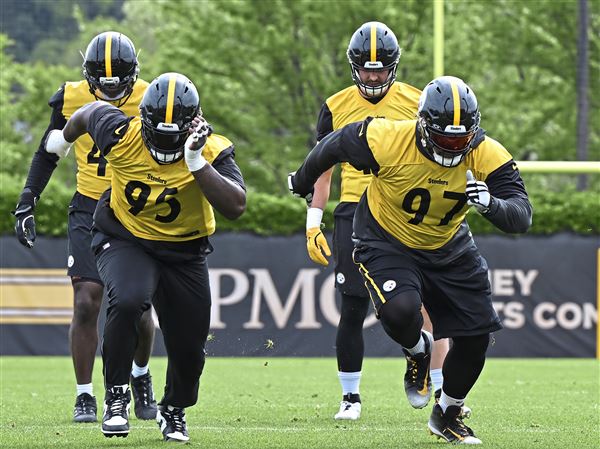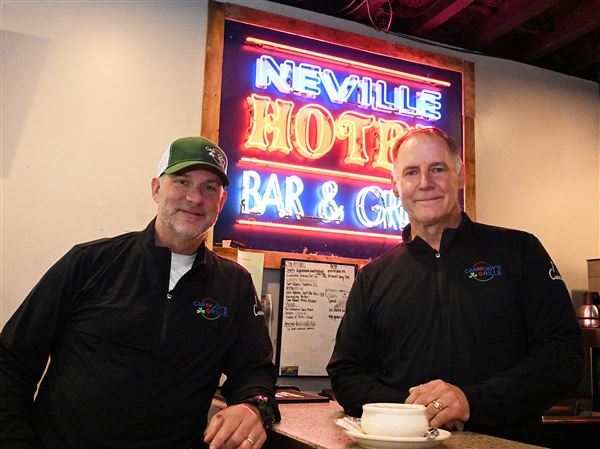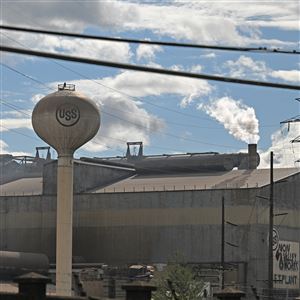MISURATA, Libya -- Jinan Hussein Jweil rested on her back on a gurney inside the triage tent. Either a bullet or a piece of whizzing shrapnel had struck the 5-year-old high on the right side of her head.
A Libyan and Italian medical team worked to save her. It was not certain they could. "Her brain is out," said Dr. Abdullah Juwid, a surgeon.
As the ugly math of a midsize city suffering a siege would have it, Dr. Juwid was both a doctor in an overcrowded triage tent and an uncle of this wounded child. He had no time to dwell on her case.
A pickup truck skidded to a stop outside. Several rebel fighters carried their bullet-riddled friend through the entrance flap. The man appeared to have been in his 20s. He had been shot through both legs and squarely in his chest and mouth. His pupils were fixed.
"Maybe he is dead," another doctor said, as their assistants cut away the man's clothes. The assistants stopped. There was no point in searching for more wounds. "He is killed," one of them said.
In the battle for Misurata, a rebel holdout city under attack by Col. Muammar el-Qaddafi's forces for months, the tally of those killed and wounded rises daily, and often by the hour. It can be only partially assessed at one of the several treatment centers scattered around the rebel-controlled portions of the city. But where it is counted, it is grim.
The wounded arrive at this triage tent throughout the day and sometimes deep into the night, a population formed by circumstance and number into a procession of wartime trauma.
Mustafa Madhoun, a physiotherapist who had never seen injuries nastier than those suffered by the victims of vehicle accidents, had just participated in the amputation of the lower left leg of a fighter, Mustafa Youssif.
Mr. Madhoun summed it up. "Yesterday was a very bad day," he said. "I had hoped today would be different. Today is a very bad day, too."
In clinical terms, this triage tent has seen a catalog of the effects of modern weapons on human life -- gunshot wounds, blast wounds, shrapnel wounds, the occasional burns. People arrive with wounds as mild as a bullet's graze, to wounds as life-changing as a severed spinal cord. A few arrive dead.
On average, 50 or 60 wounded people pass through this tent each day. About 10 of them die, according to the medical staff and the flow of patients observed.
"Most of them, for sure, are civilians," said Dr. Paolo Grosso, an anesthesiologist who is part of a seven-member team in Misurata from Emergency, the Italian aid organization, and was among those working to save young Jinan. The organization has been helping Misurata's doctors.
How many people have been fatally wounded since the siege began in February is not readily known. Rebels say more than 1,000 people have been killed. That number is not verifiable in the current conditions.
The hospital records available so far indicate that at a minimum 313 people have been killed and 1,047 wounded through Sunday evening. But this count is most likely low, as some families do not take victims who have been killed outright to hospitals. They simply bury them instead.
(Eight people who were killed in a rocket strike last Thursday, for example, were interred in a small public park in the Qasr Ahmed neighborhood without being tallied by any medical staff.)
Some days, like Saturday and Sunday, in which 70 people were verified wounded each day, have been worse than others.
Among those struck have been children, including Mohamed Hussein el-Faar, 10. He arrived at the triage tent Saturday afternoon, howling. Blood trickled from the hair beside his right ear. He fought the doctors as they tried to examine him, until several assistants held him down.
At first it seemed he had been grazed by a bullet. But there was also a wound on the opposite side of his head. After he was stabilized and moved into a facility with a CT scanner, the images provided a fuller view: a bullet had passed through Mohamed's skull.
On Sunday he was still alive, though a doctor gave a discouraging prognosis. "Not good," he said. "Never with this kind of injury is the prognosis good."
By late Sunday morning in the triage tent, there was little time to think of yesterday's patients. The sounds of battle could be heard a few blocks away, and thick smoke billowed over part of Tripoli Street, one of the city's main fronts. A hurried pace had picked up again.
At 11:20 a.m. the medical staff cut away the shirt of a man who had been peppered by light debris in an explosive blast, his back busy with small holes. An ultrasound technician scanned his torso while doctors watched.
"No problem," Dr. Grosso said. "His chest is free."
Another ambulance arrived eight minutes later, with a man who was not so lucky. A bullet had struck him near his hip -- a place where blood flow can be very difficult to stop. The crowd of men who saw him being carried off the ambulance, and saw the wide pool of blood he left behind, realized he was likely to die.
The men immediately began to chant: "God is great," they shouted, over and over.
Throughout the afternoon the pace was unrelenting. At times four or five fresh patients were treated at once. As each was wheeled out of the tent, it seemed another arrived.
The trauma center was in many ways well-provisioned. Its staff and the many volunteers who have come to support it had done the planning, and some of the necessary scrounging, to make do. (At two sinks on Sunday, the staff washed hands with powdered laundry soap -- anything to stay clean.)
Many of its principal needs have thus far been covered. It has a generator and running water, two things not available in much of the city. It serves its patients and those who work here occasional bottles of water and small portions of food.
But it lacks some medicines, including opiates. For at least a week there has been no morphine.
Some of the patients would in any other circumstance surely need it, including Mr. Youssif, a fighter brought down by ordnance that ruined his legs.
Mr. Youssif watched as his bloody pants were cut away, revealing shins that had been blown open and feet that pointed in ways they were not meant to. It was obvious his lower right leg would need to be amputated. Keeping his lower left leg appeared uncertain, too. He flashed a victory sign, laid back on the gurney, and moaned.
He began to pray.
Later, in a lull after Mr. Youssif's lower right leg had been removed, Mr. Madhoun paced away from the tent.
Assistants were washing bloodied stretchers and pushing them into ambulances headed back out. The smoke over Tripoli Street was getting thicker. Some said the rebel lines risked being broken, which might allow the pro-Qaddafi forces to push unimpeded into the city.
Asked if he was afraid, Mr. Madhoun's answer was quick.
"Absolutely not," he said. He added: "We have a strong connection to God. All of us here know that some day death will come. We know we will die. And we do not care how we die."
He stood quietly as patients were moved by. A refrigerated truck in the lot held rotting remains collected in the morning on the street. He amended his answer. "It is an honor," he said, "to die in defense of freedom."
So many, though, have been wounded or killed defending nothing, resisting nothing, just trying to stay out of the conflict's way.
As Sunday's tallies rose, an aged woman joined the procession of the wounded, as did a wafer-thin 92-year-old man, who was carried into the tent with bloodied face and feet.
He had been in his home, his son said, when a mortar or artillery round hit it, collapsing the roof.
More and more fighters arrived, too, some in pickup trucks that now contained lakes of blood. These men were in the last moments of life. By 5 p.m. the crowd around the tent was chanting almost nonstop.
Another Libyan fighter had died, and his body was to be carried to his grave. A gantlet of men formed, some of them weeping, and walked with the wooden casket containing him overhead toward another waiting pickup truck. The body was wrapped in a green blanket, prepared for the earth.
Ten minutes later, the same dirge started anew. It was another man's turn.
Dr. Grosso watched. He had been a portrait of composure throughout the day. Now he stood among the blood-splattered ambulances.
"It is a shame on Western nations," he said, and slipped back inside to work.
A short while later, the word moved from the medical staff, then through the crowd. There was another victim. Jinan Hussein Jweil, 5 years old, was dead.
First Published: April 18, 2011, 4:00 a.m.















